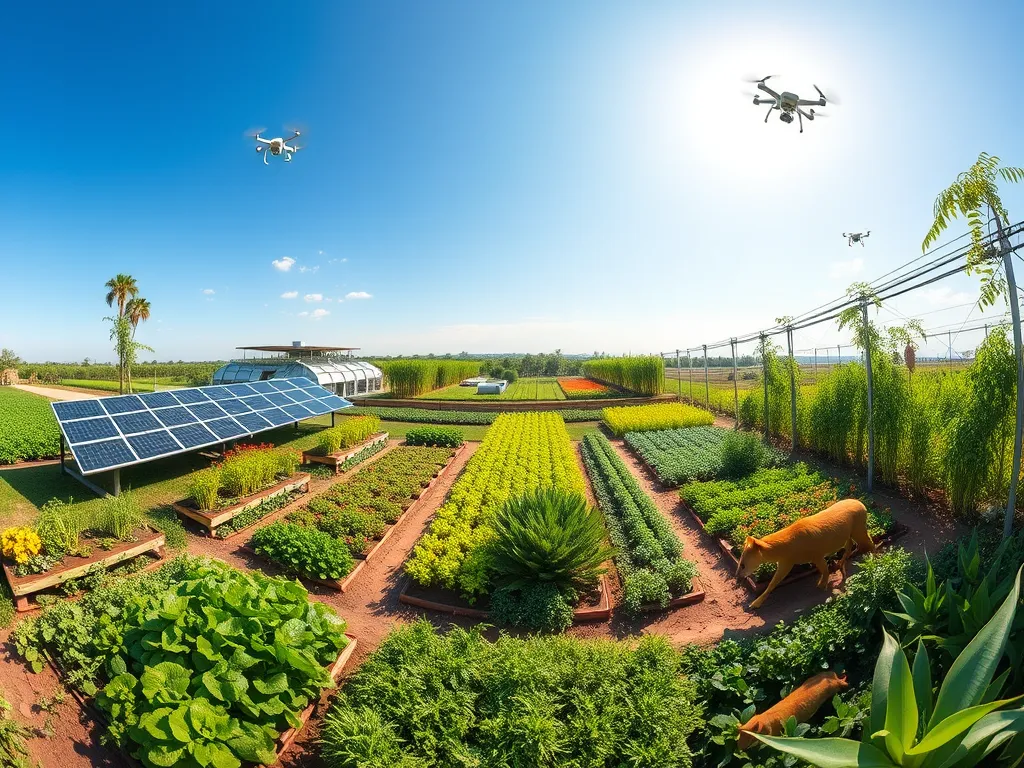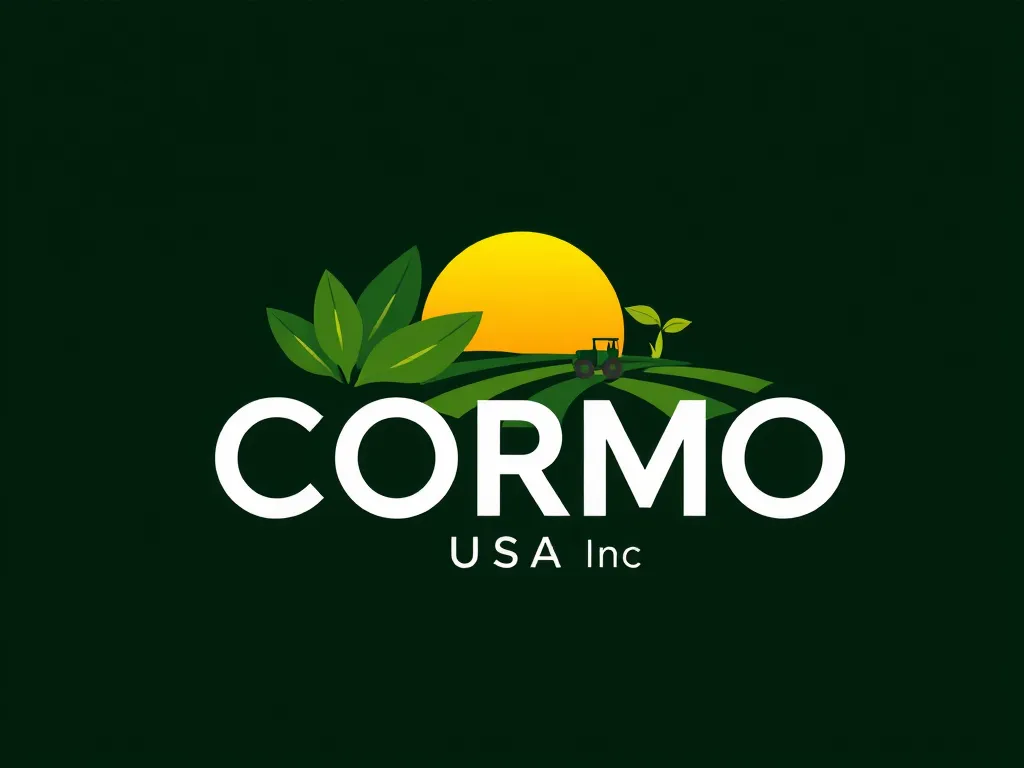Innovative Advancements in Sustainable Agriculture Practices

Sustainable Agriculture: Cultivating a Greener Future
Sustainable agriculture is a holistic approach to farming that prioritizes environmental health, economic profitability, and social equity. It aims to meet the food, fiber, and fuel needs of the present without compromising the ability of future generations to meet their own needs. By implementing practices that enhance biodiversity, conserve resources, and promote soil health, sustainable agriculture seeks to create resilient farming systems that can adapt to changing conditions and reduce the impact of climate change.
Adopting sustainable agriculture practices is essential for enhancing food security, protecting natural resources, and mitigating the adverse effects of industrial agriculture. This paradigm shift involves integrating ecological principles into farming systems, fostering innovation, and embracing technologies that support sustainability. Within the realm of sustainable agriculture, farmers are increasingly adopting strategies such as crop diversification, organic farming, and agroecological practices to improve productivity while minimizing environmental harm.
Additionally, sustainable agriculture promotes the responsible use of chemical inputs and encourages the implementation of organic methods that maintain soil health and eliminate harmful pesticides. Education and awareness are crucial in shifting public perception towards sustainable practices that can lead to both higher yields and lower environmental impacts. Ultimately, the goal of sustainable agriculture is to create a food system that is equitable, resilient, and capable of sustaining generations to come.
The importance of sustainable agriculture cannot be overstated in an era marked by climate change, population growth, and increased food insecurity. By choosing sustainable methods, farmers can conserve water, improve soil fertility, and protect local ecosystems, all while producing food that is healthier for consumers. Moreover, sustainable agriculture encompasses ethical dimensions as it promotes fair labor practices, encourages local food production, and strengthens community bonds.
Embracing Sustainable Agriculture not only preserves our environment but also ensures food security for future generations.
As we move forward, the collaboration between governments, communities, and agricultural stakeholders becomes essential in promoting sustainable agriculture initiatives. Innovations in farming technologies, proactive policies, and consumer awareness can pave the way for a more agricultural landscape that not only meets the needs of the present but also safeguards the planet for future generations.
Technology in Sustainable Agriculture
Precision agriculture is a groundbreaking advancement in sustainable agriculture that utilizes technology to optimize crop production and resource management. By employing GPS technology, sensors, and data analytics, farmers can monitor and manage variable conditions across their fields, leading to more efficient use of water, fertilizers, and pesticides. This tailored approach reduces waste and enhances yields while minimizing environmental impact.
The use of drones in crop management has revolutionized how farmers monitor their fields. Drones can capture high-resolution images, allowing for precise assessment of crop health, pest infestations, and soil conditions. This aerial perspective enables farmers to make informed decisions about irrigation, fertilization, and crop rotation, ultimately leading to increased agricultural efficiency and sustainability.
AI and machine learning are also making significant contributions to farming techniques. By analyzing vast amounts of data from various sources, these technologies can help predict yield outputs, identify potential threats, and suggest optimal planting times. This data-driven approach empowers farmers to make proactive decisions, contributing to more resilient agricultural systems and sustainable practices.
Biotechnology plays a critical role in developing sustainable crops that are more resistant to pests, diseases, and environmental stressors. Genetically modified organisms (GMOs) can lead to increased yields, reduced pesticide use, and enhanced nutritional content. When used responsibly, biotechnology can help address food security challenges while minimizing the ecological footprint of agriculture.
Organic Farming Methods
Organic farming is rooted in the principles of sustainability, emphasizing the use of natural inputs and sustainable practices. Organic farmers avoid synthetic chemicals and genetically modified organisms, instead focusing on techniques like crop rotation, cover cropping, and composting to maintain soil health. This holistic approach not only enriches the soil but also promotes biodiversity and reduces pollution in agricultural landscapes.
Crop rotation is a key principle in organic farming that aids in preventing soil depletion and controlling pests and diseases. By rotating different crops in sequence, farmers can enhance soil fertility, break pest cycles, and reduce the need for chemical interventions. This practice not only improves productivity but also promotes ecosystem stability.
Pest control in organic farming relies on natural methods such as biological control, introducing beneficial insects, and using organic pesticides derived from natural substances. These methods not only protect crops but also safeguard biodiversity and reduce harmful environmental impacts associated with synthetic chemicals commonly used in conventional farming.
Soil health is paramount in organic farming, and practices such as reducing tillage, adding organic matter, and implementing agroecological techniques contribute to building resilient soil ecosystems. Healthy soil supports diverse microbial life, which enhances nutrient cycling and promotes plant growth. These practices align with the principles of sustainable agriculture by fostering healthy and productive agroecosystems.
Renewable Energy in Agriculture
The integration of solar energy in agricultural practices has gained traction as a means to enhance sustainability. Solar panels can be installed on farms to generate electricity for various operations, such as irrigation systems, greenhouse climate control, and equipment power. This shift to renewable energy not only reduces reliance on fossil fuels but also lowers operating costs for farmers.
Wind energy is another promising avenue for sustainable agriculture. Wind turbines can provide a clean and renewable source of electricity to power farms. Moreover, the dual use of land for both agriculture and wind energy generation creates synergies that maximize land productivity while contributing to a low-carbon energy landscape.
Biogas production from agricultural waste represents a significant opportunity for sustainability. Through anaerobic digestion, organic waste such as crop residues and livestock manure can be converted into biogas, which can be used for cooking, heating, or electricity generation. This process not only diversifies energy sources but also reduces greenhouse gas emissions and addresses waste management challenges.
The impact of renewable energy on sustainability extends beyond energy production. By decreasing dependence on non-renewable resources, farmers can lower their carbon footprints and contribute to climate change mitigation efforts. The integration of renewable energy technologies fosters resilience in farming systems and promotes a circular economy where waste is minimized, and resources are recycled.
Water Conservation Techniques
Drip irrigation systems embody an innovative approach to water conservation in agriculture. By delivering precise amounts of water directly to plant roots, drip irrigation minimizes evaporation and runoff, leading to significant water savings. This efficient method not only improves water use efficiency but also enhances crop yields while preserving precious water resources.
Rainwater harvesting in agriculture offers an effective way to conserve water. By collecting and storing rainwater, farmers can supplement their irrigation needs during dry periods. This practice reduces reliance on groundwater and surface water sources, which are often over-exploited, and promotes sustainable water management in agricultural systems.
Aquaponics combines aquaculture and hydroponics to create a sustainable food production system that uses water efficiently. By integrating fish farming with plant cultivation, aquaponics recycles water and nutrients, minimizing waste and environmental impact. This closed-loop system not only conserves water but also yields both fish and vegetables, offering a diverse source of food.
Water-saving technologies, such as soil moisture sensors and irrigation scheduling systems, play a pivotal role in sustainable agriculture. By utilizing these technologies, farmers can optimize water usage, respond to changing environmental conditions, and improve crop resilience. Efficient water management is crucial for sustaining productivity while preserving vital water resources.
Biodiversity and Crop Varieties
The importance of genetic diversity in crops cannot be overstated in sustainable agriculture. Diverse crop varieties are more resilient to pests, diseases, and changing climate conditions. By cultivating a variety of crops, farmers can reduce the risk of total crop failure and enhance overall productivity while preserving genetic resources for future generations.
The integration of heirloom plants into farming systems enriches biodiversity and fosters community engagement. Heirloom varieties often possess unique flavors and characteristics that traditional commercial crops lack. By cultivating these crops, farmers not only contribute to biodiversity but also preserve cultural heritage and provide consumers with diverse and nutritious options.
Permaculture practices emphasize ecosystem-based approaches that enhance biodiversity and improve ecological health. By designing agricultural systems that mimic natural ecosystems, farmers can create sustainable environments that promote soil fertility, prevent erosion, and support wildlife. Permaculture fosters resilience and sustainability while facilitating productive landscapes.
Fostering pollinator populations in farming is essential for sustainable agriculture. Pollinators play a crucial role in crop production and maintaining biodiversity. By planting pollinator-friendly species, providing habitat, and avoiding harmful pesticides, farmers can enhance pollinator health and simultaneously improve crop yields, contributing to both agricultural and ecological sustainability.
